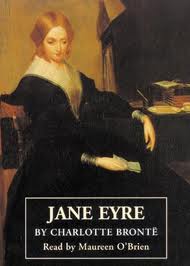Rebecca
Jane Eyre
Allen Ginsberg
"Poetry is not an expression of the party line.
It's that time of night, lying in bed,
thinking what you really think,
making the private world public,
that's what the poet does."
"The only thing that can save the world
is the reclaiming of the awareness of the world.
That's what poetry does."
"Nobody saves America by sniffing cocaine,
jiggling your knees blankly in the rain,
when it snows in your nose you catch cold in your brain."
Question:
The ‘popular’ is a site of ideological struggle between resistant
subordinate groups/culture in society and the dominant groups
/culture who perpetually endeavour to incorporate them”
(Johnson 54). To what extent do you find his definition
appropriate when analysing Rebecca and the poetry of
Ginsberg?
The ‘Popular’ text as Dwight Macdonald asserts “is like
chewing gum”, lacking in literary value; it caters to the lowest
sense of contentment for the common people of the mass
culture. Modernists assert that ‘serious’ literature: an art for
radical use, should be avant-garde, constantly reinventing
itself, catering only to a small discerning audience. Thus, in
brief, ‘Popular’ is: trivial, formulaic, repetitive, uninventive,
exploitative, devoid of aesthetic value, distinctive from the
great literature of the past and catering to the middle-class,
philistines and the mass.Value-judgments: aesthetic, social
and politics in literature are infamously wavering so no
literary work is innately valuable in itself. The literary
canon is a construct by specific people for specific purpose
at a specific time frame.
The ‘popular’ Rebecca is not merely
a replica of the canonical Jane Eyre; only acute, discerning
critics are enlightened to its theoretical readings of identity,
class and gender and Sigmund Freud’s psychoanalysis and
Ginsberg’s poetry is not merely ‘popular'. It serves to
revitalize old rigid conventional poetry and to shout out the
soul of his society.
Rebecca defies the rigid definition of ‘popular’- the fact it is
considered merely a gothic romance. Its fairytale setting comes
with a twist; it hints at the nightmare perversion of the orderly
domestic setting. Additionally, upon close examination,
Rebecca reveals theoretical readings of contemporary critics:
identity, class and gender. It also is uncannily suggestive of
Sigmund Freud’s psychoanalysis: the development of female
sexuality. Its mixed genres: romance, murder, historical
/cultural studies and psychology challenge the inflexible
boundary between ‘High’ and ‘popular’ literature.
From the historically specific perspective, Rebecca could have
engaged in the anxiety of its time: identity, class and gender.
The moment the nameless narrator steps into her new home,
she abandons her own name and takes on a new title of de
winters, yet she is constantly struggling with an invisible
identity. Marriage renders the effacement of women’s
individual identity. Class issues are also depicted by the
disparity in age, wealth and class of the narrator’s marriage
and gender roles are closely aligned with class struggle.
Maxim and Manderley that represent perfect domesticity are
seen as warped and rootless. The promiscuous Rebecca and
the infertility of her malformed cancerous uterus depicts her
as an antithesis of a proper womanhood: being married,
monotonous and child-bearing. The murder of Rebecca and
her unproductive female sexuality has reduced the upper class
Manderley into a warped representation of conventional
domesticity. The fact that Manderley is eventually destroyed,
this could endorse the victory of the middle class. Thus the
text could be seen as shaking up and reinventing one’s role in
the social structure. The focus of class consciousness, the
decaying façade of aristocratic power and the renegotiating
of perceived power relations between the classes is highly
evident in its text.
The first chapter of Rebecca is deftly crafted in a dream, in line
with Freud’s dream theory:A dream is a disguised fulfilment
of a repressed wish. The ingenious option of first person
nameless narrator, invites the reader into the surreal world
of her complex subconscious: the blurring of fantasy and
reality. Freud’s Odeipus complex, from the perspective of
female sexuality alleges that the girl’s first love is her mother
but as she grows, she becomes intimately attached to her
father. In this process, she now starts to detach from her
mother, develops a hostile relation and an intense fear of her
and directs her affection to her father instead. Mrs Danver
resembles an oppressive motherly figure and Rebecca as
the ‘other woman’. Furthermore, Freud also asserts that
women usually marry a man who is a substitute of their father
while subconsciously battling their inner conflict of their hostile
relationship with their mother. This conflict is reflected in the
narrator’s insecurity and unstable relationship with Maxim.
Additionally, according to Freud’s model of the psyche: the
Idrepresents the pleasure mind, seeking only immediate
enjoyment; the ego is the rational mind, prohibits one’s basic
drives foridealistic fantasies and the super-ego, the
perfectionist, plays the critical, moralizing role. Rebecca is
significant as the moralizing principle, she is the epitome of
social grace that is torturing the narrator. The conflicts of the
Id, the ego and the superego is constantly battling in the
narrator’s mind. Viewed through a Freudian lens: Rebecca is
no longer a straight-forward romance, rather it emerges as a
psychological study of the complex female sexuality; thus
perhaps so, it has an enduring intriguing appeal with the mass
readership. Hence, the genre of Rebecca is ambiguous and
it has an avant-garde perspective at the time it is written;
and only the acute critics can identify the psychological
insight the novel delivers.
Allen Ginsberg’s innovative Beat poetry is the new poetic
voice of America in the fifties. Beat poetry, in order to
distinct itself from conventional poetry, borrows from ‘high’
poetry and energized its new forms with jazz-improvising
style plus a plurality of mass culture’s voices. These voices
are their passionate rebellion against American culture: the
hypocrisy of any established norms; and their ecstasy is
immersed in jazz, homosexuality and dope-addiction. Beat
poets serve a public purpose: protest against capitalism,
consumerism and social inequalities. In its fierce attacks
against the mainstream US values, this new and
revolutionary force sought a new audience within the
counter culture.
Ginsberg believes that the mind should be free to roam so
that significant associations and connections could be made
and truths emerge. Ginsberg asserts that old poetry should be
revolutionised. He creates an enduring, intriguing tension
between the ‘high’ and ‘popular’ by adding new forms to
the existing ‘high’ literature. Thus, using his self-reflective
technique, he straddles between describing his poetry first to
make it more spontaneous, colloquial and conversational as
well as polishes them with careful construction. Some of the
new forms include jazz-like form: unrhymed lines, no regular
metre, no stanza form, ellipsis and catalogue.
Additionally, the relentless litany-style repetition like the
active verbs ‘who’ in Howl conveys a sense of intensity and
urgency in actions,movements and momentum. The varying
length and inconsistent flow of lines adhere to the
spontaneous experimental jazz –like style of improvising
and the lack of full stops give a sense of breathlessness.
More significantly, the unconventional word play (placing
words in uncertain relations to each other) is mightily
intriguing. For example, Moloch (a name of god) has
being juxtaposed:
“Moloch whose mind is pure machinery!
Moloch whose blood is running money!
...
Moloch whose ear is a smoking tomb!”
(Howl part 2, 5th stanza)
Though the tone is colloquial and conversational it is
accompanied by powerful vivid images that heightens its
poetic qualities, for example, the juxtaposed religious and
‘de-romanticed’ mechanical images:
“Moloch whose skyscrapers stand in the long streets like endless
Jehovahs!”
(Howl, part 11, 6th stanza)
Ginsberg’s father, Louis, uses the ‘high’ poetic tradition:
regular stanza form, rhythm and rhyme, very different
from his son’s. In Atomic:
The splitting apart
Of man from man
Dooms more than splitting
The atom can.
The ‘high’ poetry here, has a sense of rigid formality with
much focus on the meticulously aesthetical structure of words.
This seems to focus on the vanity of the poet himself rather
than passionately expressing the seriousness, agony and
tragedy of the atom bomb. Compare this with
Ginsberg’s Howl:
"I saw the best minds of my generation destroyed by madness,
starving hysterical naked,
dragging themselves through the negro streets at dawn
looking for an angry fix,…”
Here, people are described as ‘starving, hysterical, angry,
burning’; the imagery here is vivid and the words are
intense. The passion is ignited, it captures the precise,
particular rhythm and sentiments of his generation.
Ginsberg’s sense of poetry is, as stated at the end
of Howl:
“to recreate the syntax and measure of poor human prose
and stand before you speechless and intel-
ligent and shaking with shame, rejected yet con-
fessing out the soul to conform to the rhythm
of thought in his naked and endless head.”
Ginberg’s new poetry speaks profoundly and genuinely of
what is really happening in his society and more significantly,
the communication between the souls rather than rigidly
adhering to the form of ‘high’ literature soullessly.
Literary value is not a fixed phenomenon: its value is
subjective and continuously shifting. The rhythm of each
generation is different, all things evolve: politics, economics,
lifestyles. So why shouldn’t literature evolve? High literature
no longer belongs to the exclusive elite especially in this age
of technology; the literacy rate has expanded tremendously
and there are more educated and intelligent people belonging
to the mass culture than in the era of the canonical writers.
To rigidly focus on the aesthetic stylistics without expressing
the entire explosive emotions, anxieties and sentiments of the
contemporary society is to be devoid of genuine emotional
rhythm and momentum which is worse than the devoid
aesthetic values.
If Jane Eyre can evolve from popular fiction to ‘High’
literature, why shouldn’t Rebecca? Rebecca is not just a
slavish imitation of Jane Eyre, it is a re-write of an original
idea. Its intertextual and ambiguous quality can be interpreted
in many ways and has an enduring appeal. Additionally,
Ginsberg ingeniously revolutionised old poetry with new forms.
His energized poetry can precisely depict the hurricane of
emotions of his generation that rigid forms fail to do so.
Mikhail Bakhtin, the Russian philosopher in his work of
literary theory denounces the ‘monologic’ work of literature,
he contends that all works of literature is dialogic: it is a
continuous dialogue with other works of literature and
other authors.
(1586 words)
Bibliography:
Du Maurier, Daphne. “Rebecca” Virago press. 2010. Print.
Johnson, David. “The Popular & the Canonical.” The Open University, Routledge. 2005. Print.
Ginsberg, Allen. “Howl” City Lights Books. 1959. Print.
Dialogic.Wikipedia. Web. 21 Aug. 2010
http://en.wikipedia.org/wiki/Dialogic
Freud about Dream Interpretation. Web. 21 Aug. 2010
http://dreaminterpretation.freudfile.org/freud_about_dreams.html
Oedipus complex. Wikipedia. Web. 21 Aug. 2010
<
http://en.wikipedia.org/wiki/Oedipus_complex>
Total Mark : 80
Dear Cheryl
This has been a pleasure to read with many keen insights that address the question and engage with the issue of resistance to ideologies. There is also close textual analysis and a distinct flow of the arguments. That said, it’s a well-constructed and relevant response.
Marcus

















